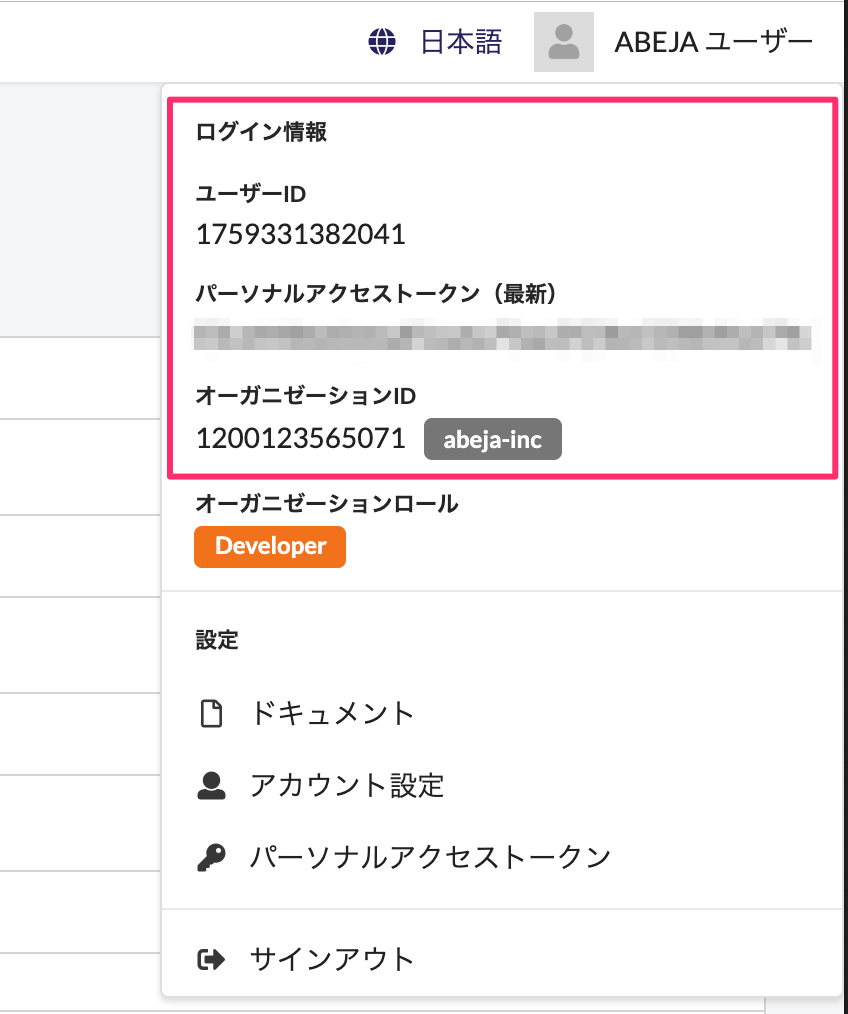- Overview
- Getting Started Guide
- UserGuide
-
References
-
ABEJA Platform CLI
- CONFIG COMMAND
- DATALAKE COMMAND
- DATASET COMMAND
- TRAINING COMMAND
-
MODEL COMMAND
- check-endpoint-image
- check-endpoint-json
- create-deployment
- create-endpoint
- create-model
- create-service
- create-trigger
- create-version
- delete-deployment
- delete-endpoint
- delete-model
- delete-service
- delete-version
- describe-deployments
- describe-endpoints
- describe-models
- describe-service-logs
- describe-services
- describe-versions
- download-versions
- run-local
- run-local-server
- start-service
- stop-service
- submit-run
- update-endpoint
- startapp command
- SECRET COMMAND
- SECRET VERSION COMMAND
-
ABEJA Platform CLI
- FAQ
- Appendix
init
Description
Setting credential files for using abeja command. You can also have multiple named credentials and switch each one by executing switch command.
The Abeja Platform CLI stores the credentials in the file ~/.abeja/config.
Synopsis
$ abeja config init [--help]
Usage: abeja config init [OPTIONS] [NAME]
Initialize ABEJA credentials
Options:
-y, --yes, --assume-yes Automatically respond yes to confirmation prompts;
assume "yes" as answer to all prompts and run non-
interactively.
--help Show this message and exit.
Option
-y, --yes, --assume-yes
If this option enabled, automatically respond yes to confirmation prompts while initializing a new credential.
Authentication information
The following is needed information for Authentication.
| Item | Description |
|---|---|
| User ID | The ID to identify the user |
| Personal Access Token | Token to authenticate the user |
| Org ID/Name | The organization ID/Name user belong to |
You can go and see for those information on the Account Menu where upper right on the top page.

Account Menu
Environment variable
And you can also specify with environment variable those authentication information.
| Item | Matching Environment variable |
|---|---|
| User ID | ABEJA_PLATFORM_USER |
| Personal Access Token | ABEJA_CLI_TOKEN |
| Org ID/Name | ABEJA_CLI_ORGANIZATION |
These environment variables overrides the file created by this command if both exists.
Example
Setting Authentication information at init
Command:
$ abeja config init
User ID : 1098109094527
Personal Access Token: 6be7ed221d418f1a564d5d46ace29047d8a56c97
Organization ID : 1113864244136
Output:
[INFO]: ABEJA credentials setup completed!
Setting Authentication information at init with name
Command:
$ abeja config init example
User ID : 1317234056504
Personal Access Token: 98f91de714f4450e991e384197f9e6dde6e75411
Organization ID : 1014995786418
Output:
[INFO]: ABEJA credentials setup completed!
Specifying Authentication Information in Environment Variables
$ ABEJA_CLI_USER=1759331382041 ABEJA_CLI_TOKEN=03cd44... ABEJA_CLI_ORGANIZATION=abeja-inc abeja config show
abeja-platform-user:user-1759331382041
personal-access-token:03cd44...
organization-name:abeja-inc